Scammer steals disabled Portland veteran’s identity to exploit would-be renters nationwide
John Nyehart needed to find a place to live quickly, and in the process, fell for a scam. Now, his name is being used to rent dozens of fake properties nationwide.
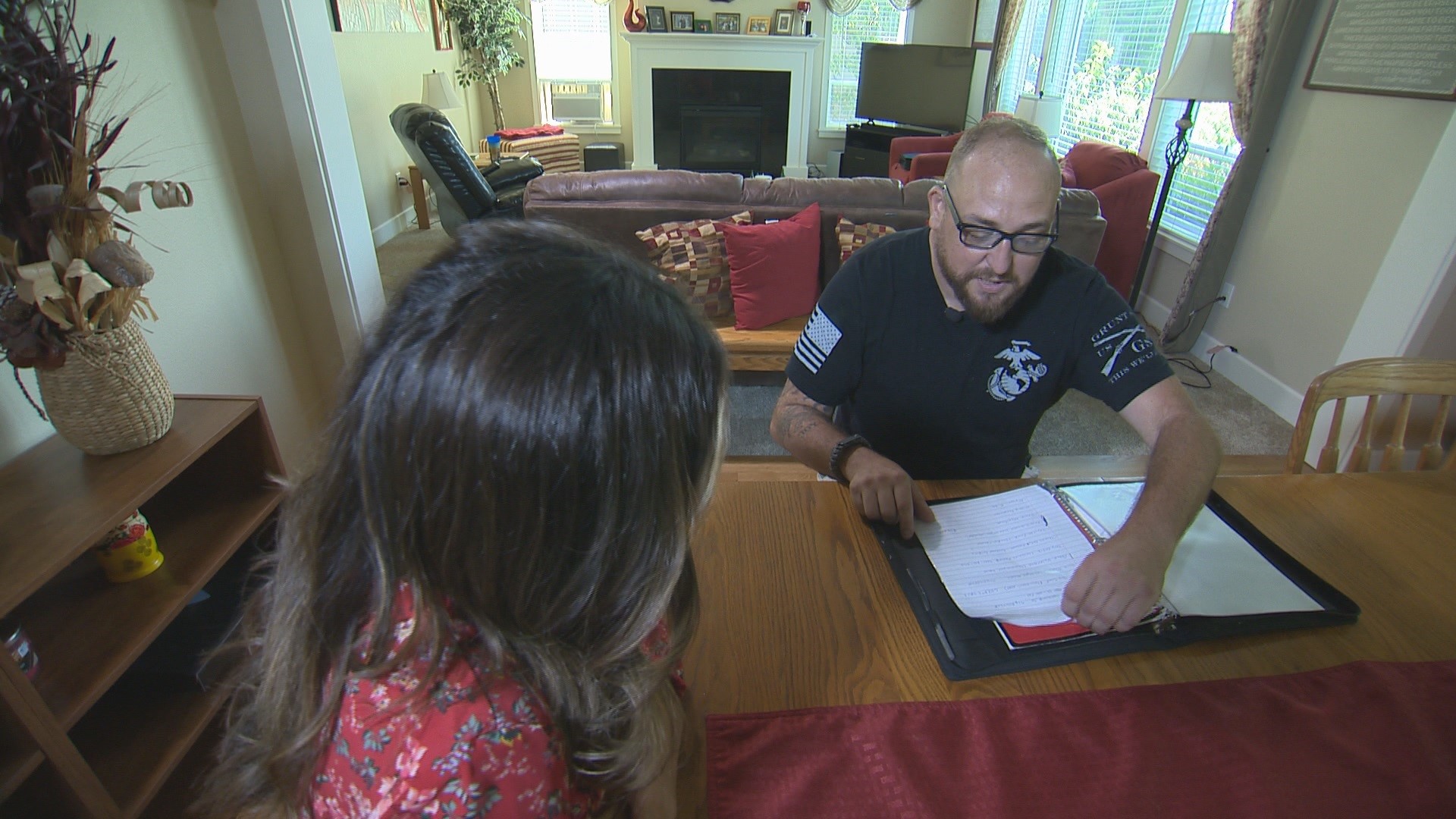
Online high pressure rental scams have been going on for years, only growing more prevalent as more real estate deals are done online.
Some scammers rip off real rental or real estate listings by taking photos and posting them as their own on another site, and by changing the name and contact information. Other con artists make up listings for places that aren’t for rent or don’t exist.
But what if the name scammers are using to pose as landlords is a stolen identity?
That’s what happened in the case of a Portland man, who feels getting this story out is the only way to stop more people from falling prey.
Case of stolen identity
“It was October of 2017, I was trying to get out of an apartment complex I was living in, so I was looking on Craigslist to try to find a place to live. Found a house, it was pretty decent,” said John Nyehart, a disabled veteran who lives in Portland.
He got responses back from the supposed landlord and was sent a rental application. The process was rushed and hurried.
“I sent him a legitimate rental application, my Social Security number, driver’s license, I had my military ID as well,” Nyehart said. “Sent him pictures of my ID, which was not smart, but I did anyway. I needed the house.”

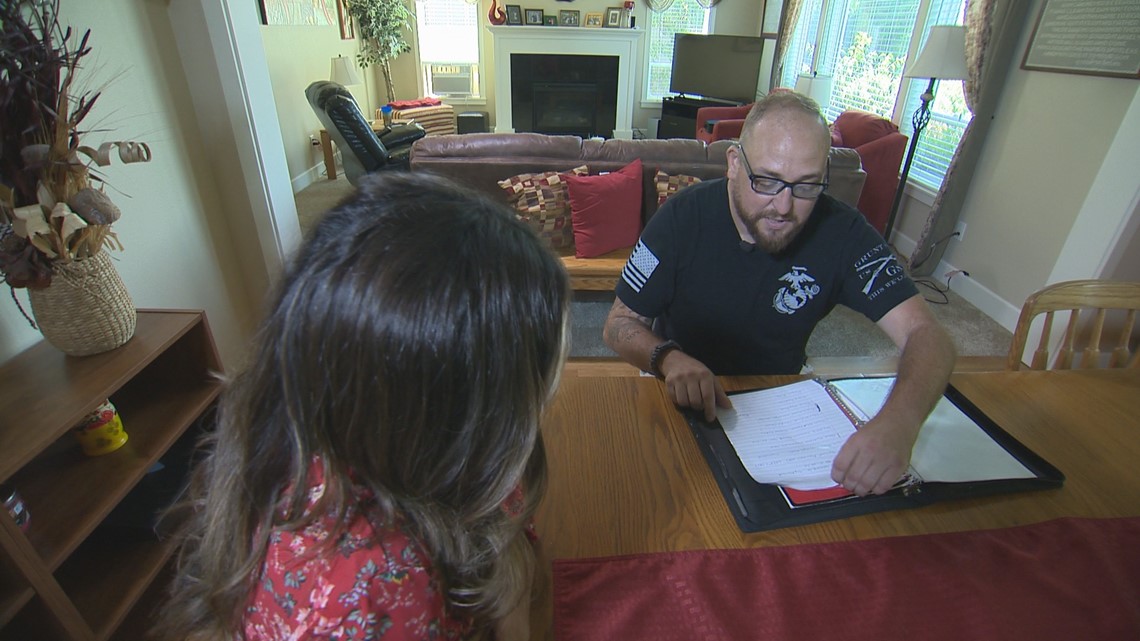
Nyehart didn’t completely fall for the scam because the lock box code the scammer gave him was too long. So, he asked neighbors who the real property owner was, and quickly found out it was a con.
But the scammer had enough information to steal Nyehart's identity. They used his name to post fake rentals online all over the country.
"I started getting messages on Facebook, people asking me about houses I had for rent and I’m like, 'I don’t have any houses for rent'," Nyehart said. "They’re nice houses. They’re priced for rent lower than – not by much – but lower than you normally would see."

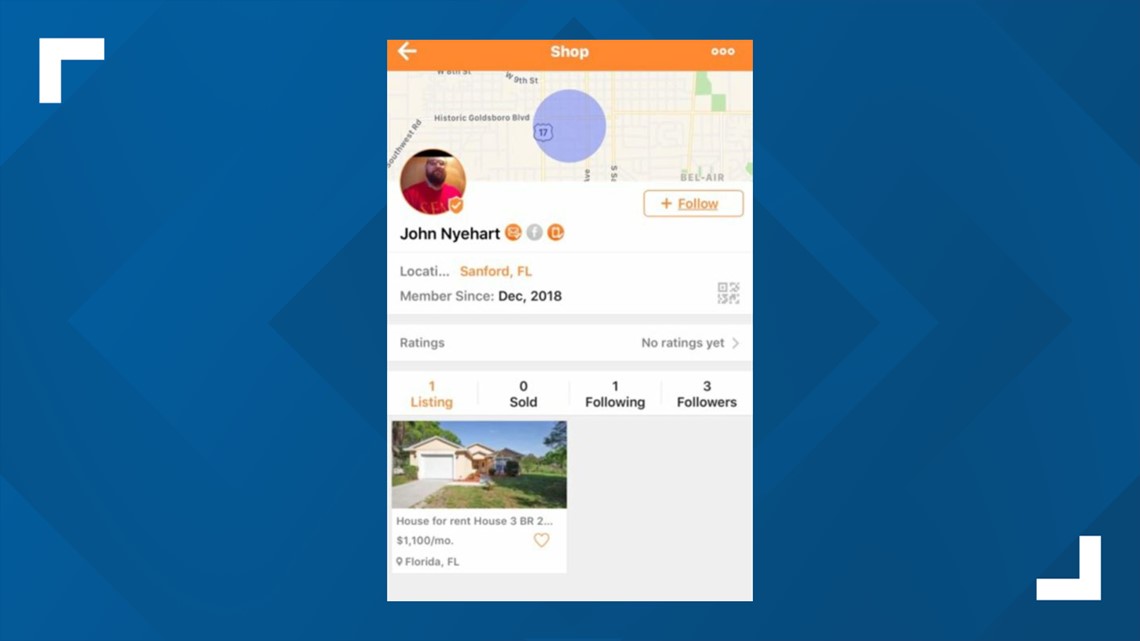
The scammer gave prospective renters the same sob story in broken English – only over text messages and usually using a variety of different phone numbers for each property. The texts said the following, or something almost verbatim:
“My property is still available for rent, we had to relocate due to my wife condition suffering from cancer which she just have few months to live that why we moved out of the area to be closer to her family. And i’m not looking to come back to the home because i cannot stand the memories when she is gone, this is my reason for leasing out the home as i do not want it to be vacant just as its now, i’m in need of a great tenant who would help take care of this property like their own.”

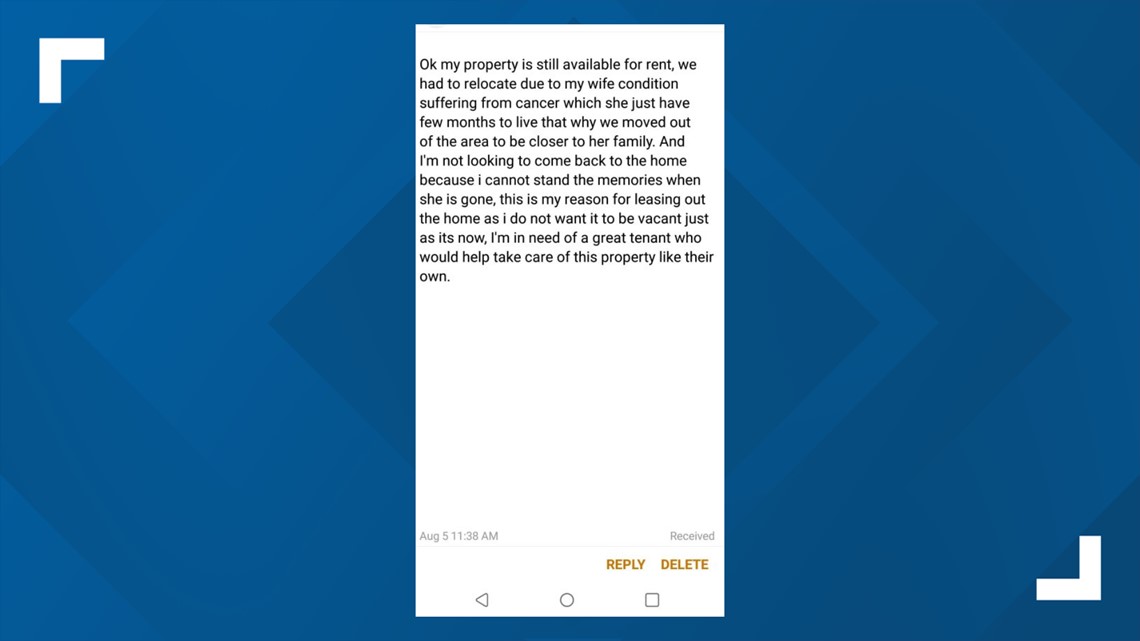
The scammer refused to speak over the phone, and said he was “at work." The scammer sent potential renters a lease agreement, and sometimes, even a deed of trust, which is an agreement between a lender and borrower to give property to a trustee.
Nyehart said the con artist would sometimes send potential renters lock box codes for the homes, which would sometimes work.

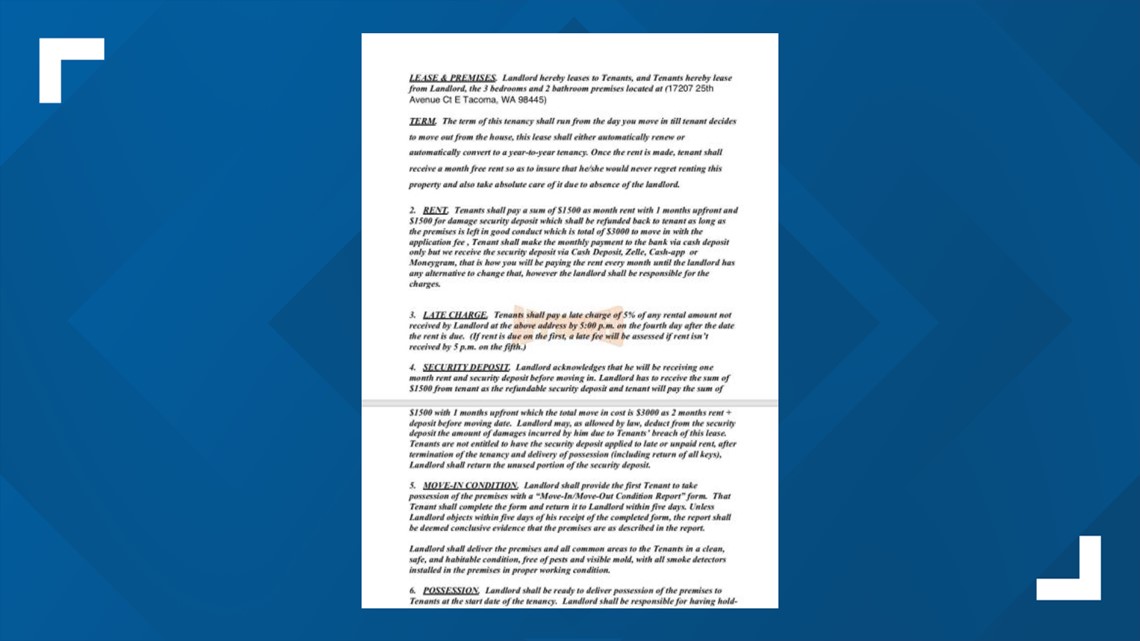
Lastly, the scammer asked people to wire him money through money transfer apps.
"Some people have gone so far as to try to pay for rent for like up to six months. So, I know some people have lost like $6,000, $7,000, $8,000 plus $2,000 for a deposit. This last person who contacted me said she lost $1,000,” Nyehart told KGW. “Once you send him the money, he’s in the wind.”
Prospective renters who lost thousands of dollars in the scam now directly contact Nyehart, whose Facebook inbox is overflowing. Some people sensed a scam was occurring, others were angry at Nyehart, thinking he was responsible for the con.
"I just answer them back [and say], ‘No, don’t send any money, don’t send them any information, he’s a scam, it’s a scam!’” Nyehart said.
He started keeping track of the victims who reach out to him about six months ago.
"I probably have enough to fill a notebook, it’s been that bad,” Nyehart said. “There’s Tacoma, Sacramento, New Mexico, Nevada, Indiana, another California, Florida… Illinois. And this last lady was Arizona. I’ve had Texas, Colorado.”
KGW's Morgan Romero reached out to the scammer. When she confronted him via text message with the real John Nyehart’s story, the scammer told Romero he didn’t know what she was talking about and that she had the wrong number. Then he stopped responding.
Preventing others from falling prey
Nyehart has reported the scams to law enforcement agencies in areas where the houses were supposedly for rent. They all said they couldn’t do much, he said, and the FBI told him the same thing.
Nyehart said the FBI tracked down the scammer all the way to Uganda. Although they know who he is, law enforcement can’t get him.
Meanwhile, the con artist is preying on people, often in a bind, across the ocean and there’s nothing Nyehart can do but get the word out.
"It is frustrating. But, if I can save somebody from not giving this guy money then it’s worth it,” he said. “He stole my identity but he’s taking money from people.”
Danielle Kane, marketplace manager for the Better Business Bureau (BBB) Northwest + Pacific, said as more deals are done online, the BBB is tracking an uptick in rental scams. She said scammers are taking advantage of the fact so much of the rental and home-buying process can be completed digitally.
“It’s really sad because you are potentially putting down $1,000, $2,000 or $3,000 at a time. And if you’re already in a bind, odds are that $2,000-$3,000 is close to all you have. So, it’s really heartbreaking and frustrating sometimes to hear how easily people have been scammed," Kane said.
When people lose money to these scams, they often don’t ever see the money again, Kane said.
Scammers rely on high-pressure tactics to close the deal quickly. In order to make sure this doesn’t happen to you, you need to be careful with your information and do your homework.
“It's OK to have your guard up. We live in a world now where it’s way too easy to be scammed, where identity theft is not that few and far between anymore,” Kane said.
That truth is something Nyehart is fighting to keep others from falling victim to.
“Fourteen years in the military, that’s just who I am. I just want to try to help these people… I’m still protecting even though I’m not in the military anymore. That’s just who I am,” he said. “I don’t want anybody to get scammed like this. This is not a way to live.”
Renter beware
The Better Business Bureau and Federal Trade Commission (FTC) advise you be savvy throughout your rental search, so you can detect signs of a scam. These are some of the surest signs:
- They tell you to wire money for a security deposit, application fee, or first month’s rent.
- They want money before you’ve met or signed a lease. Experts say it’s never a good idea to send money to someone you’ve never met in person, especially for an apartment you haven’t seen.
- Look up the owner and the listing online. If you find the ad under a different name, that may be a hint it’s fake.
- The BBB said pay attention to red flags like broken English and sob stories.
- Watch out for deals that are too good. Research similar properties in the area to find out the true price.
- At the very least, get the supposed landlord or property owner on the phone.
If you become a target of a rental scam, contact the site where you found the ad.
Report the scam to your state attorney general’s office, the Federal Trade Commission and your local Better Business Bureau.
KGW Investigates: : 'I was panicked, I was afraid': How scammers are using Social Security to prey on Americans

